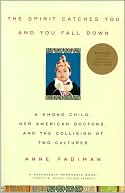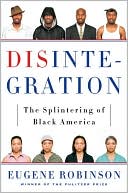Generous Betrayal: Politics of Culture in the New Europe
All over Western Europe, the lot of many non-Western immigrants is one of marginalization, discrimination, and increasing segregation. In this bold and controversial book, Unni Wikan shows how an excessive respect for "their culture" has been part of the problem. Culture has become a new concept of race, sustaining ethnic identity politics that subvert human rights—especially for women and children. Fearful of being considered racist, state agencies have sacrificed freedom and equality in the...
Search in google:
All over Western Europe, the lot of many non-Western immigrants is one of marginalization, discrimination, and increasing segregation. In this bold and controversial book, Unni Wikan shows how an excessive respect for "their culture" has been part of the problem. Culture has become a new concept of race, sustaining ethnic identity politics that subvert human rights-especially for women and children. Fearful of being considered racist, state agencies have sacrificed freedom and equality in the name of culture.Should immigrants be allowed to take their children, who have been born and raised in one country back to the "homeland" to be married against their will? Should schools provide bilingual instruction, even when it means that children of immigrants will never learn to speak their mother tongue? Where should immigrants' loyalties lie-with their country of birth or their country of residence? What is the meaning of citizenship in this multicultural world? These are among the questions that Wikan confronts, comparing her native Norway to Western Europe and the United States. Writing with power and grace, she makes a plea for a renewed moral vitality and human empathy that can pave the way for more effective social policies and create change.
Generous Betrayal \ POLITICS OF CULTURE IN THE NEW EUROPE \ \ By Unni Wikan \ The University of Chicago Press \ Copyright © 2002 The University of Chicago\ All right reserved.\ ISBN: 978-0-226-89685-4 \ \ \ \ \ Chapter One \ WELFARE FOR WHOM? A Society Worth Living In \ Some words of Eric Hobsbawm, renowned historian and author, can serve as a fitting preamble to this book. Hobsbawm ended a lecture to students at a Central European university by telling them something he himself had been taught before he began to teach:\ "The people for whom you are there," said my own teacher, "are not the brilliant students like yourself. They are the average students with boring minds who get uninteresting degrees in the lower range of the second class, and whose examination scripts all read the same. The first class people will look after themselves, though you will enjoy teaching them. The others are the ones who need you."\ He continued:\ That applies not only to the university but to the world. Governments, the economy, schools, everything in society, are not for the benefit of the privileged minorities. We can look after ourselves. It is for the benefit of the ordinary run of people, who are not particularly clever or interesting, ... not highly educated, not successful or destined for success, in fact, nothing very special. It is for the people who, throughout history, have entered history outside their neighborhoods as individuals only in the records of their births, marriages, and deaths. Any society worth living in is one designed for them, not for the rich, the clever, the exceptional, although any society worth living in must provide room and scope for such minorities. (1993:64)\ Such is the message of this book: Modern states are all, to varying degrees, welfare societies. A welfare society is worthy of the name only if it caters to the well-being of its neediest members. Is Norway up to the test?\ My angle on this problem will be culture and identity politics. I shall explore the way certain European nations and their publics cope with the challenge posed by the new immigration that is rapidly changing their face and future. How is Norway managing to craft a new plural society in which immigrants and their descendants can live and be respected as equal human beings? Let me begin by way of a story.\ 2 A Tale of Two Would-Be Survivors\ She was fourteen years old, a Norwegian citizen, born and raised in Norway. Suddenly in 1996 she was taken out of the country to be married in her parents' original homeland. She feared the deportation and fought it with all her might. She lost; and she lost with what appears to have been the consent of the child welfare authorities, who forced her back to her parents after she had managed to escape to a foster family with which she had previously been placed. Because of the problem of finding someone from her parents' ethnic minority, the foster family was ethnically Norwegian.\ The girl, let us call her Aisha, had thrived with her new family. She begged to be allowed to remain with them, backed by her teachers, who had witnessed her suffering from mistreatment by her parents and kin. To no avail. Convinced that children should remain "in their culture," the child authorities did not pause to ask what is in effect the culture of a girl born and raised in Norway. Rather, they assumed that they knew, as if culture were determined by birth and parentage, not by experience and learning. And so Aisha was brought back to her parents by force when they insisted on having her back and promised to treat her well-vows Aisha did not believe in the least.\ The last anyone in school heard from her was a frightened whisper into a mobile phone before the phone went dead. Two days later the family was out of Norway. The parents came back from time to time. Aisha alone was gone.\ To throw Aisha's story into relief, a comparison with her father is in order. Twenty-five years earlier, when living in his native land, Aisha's father had faced a situation not unlike Aisha's own. He too was threatened with an assault to his freedom and identity-not from a forced marriage but from forced loss of his job. Because he drank heavily, he was fired, and he had meager prospects for new employment. Thus unable to provide for his family and reap respect in society, he looked for an escape. And he found it in the prospect of life in a welfare society that takes care of a man's needs whether he works or not.\ He journeyed to Norway and made his career as a social welfare client. He did well. Residing now with his family in an elegant section of the capital city in an apartment supplied by the state, he managed to save some money and invest in property in his native land. Thus he recouped his honor and expanded his freedom, even raising his prospects in the marriage market: he could leave his first wife, the mother of his son, and marry a woman twenty years his junior. He continued to drink and spoke no Norwegian, but that is beside the point.\ The story of Aisha's father would be a success story, were it not for certain uncomfortable facts. Aisha was not an only child; she had five brothers. The eldest died of an overdose of drugs. Another became what in Norway is called a versting (from the adjective for "worst"), meaning an incorrigible juvenile delinquent. Two younger boys, when only seven and ten, already had a history of violent, antisocial behavior, even as their mother was expecting yet another child.\ Aisha was a would-be survivor who tried to break out from this vicious circle. As her father had done twenty-five years earlier, she looked for an escape when faced with a threat to her freedom and identity. Like him, she had been socialized to think that she mattered as a human being and that her personal welfare counted. In his case, it was his Middle Eastern upbringing that had instilled such ideas in a man; in hers, it was her education in a Nordic welfare society committed to the premise that all humans are equal, irrespective of gender and rank, that had formed her thinking. Father and daughter thus had similar compelling concerns and took similar steps to safeguard their welfare and identity. He escaped to a foreign land to start life anew. She solicited a foster family to have a new beginning. He won, she was defeated. And she lost at the hands of the same nation that saved him-not a traditional Muslim society but a modern European welfare state, her country, one with which she identified but he did not.\ Norway prides itself on its humanitarian values. Indeed, it was those values, realized in the form of practical social policies, that enabled her father to come as an alien and reap the fruits of a welfare system to which he had contributed nothing. This is the essence of a truly socialist and humanist state: that it gives to each according to his or her needs, not according to his or her contributions. Yet when Aisha's welfare was most at stake and her protection urgently needed, this same society let her down.\ Aisha did not want to be sent to a foreign land. All she wanted was to be able to lead the life of a normal Norwegian fourteen-year-old-to go to school, see her friends, and be protected from mental and physical abuse. Such rights are written into the Norwegian constitution. Such should have been her rights. Yet when Aisha tried to plead for her welfare, she ran up against resistance of the most impervious kind: she did not receive the backing that would have permitted her to continue her education; she was deprived of her freedom of movement; she was deprived of the right to decide whom and when to marry; and, by being forcibly reunited with her family, she ended up as an involuntary bride.\ Thus she was doubly deprived of her citizen's rights. Forced marriage is illegal according to Norwegian law. So is depriving a child of a primary school education. Aisha was, in effect, granted fewer rights than her father, who has been able to ride the Norwegian system with considerable success. It is a tragedy that the same nation that rescued him has so subverted Aisha's efforts that she could now be considered a missing person.\ Though presumably living somewhere, somehow, Aisha is out of reach, incommunicado. She cannot get in touch with any of her former friends, nor they with her-and not, presumably, because she wanted it that way: the letters she wrote and was able to send before her departure from Norway all burn with a scathing accusation: "Do they think I'm lying?" She refers to her abortive efforts to alert the child welfare authorities to her story of physical and mental violation at home and to the plight that was in store for her.\ The child authorities are not callous. They care for this girl and are concerned that they may have done her harm, now that it is too late to help. Her parents assure them they have nothing to fear: Aisha is happily going to school in their homeland. "Happily!" snorted a young man of the same ethnic heritage. "That's what they always say to convince their daughters they have nothing to fear by going on vacation to the parents' homeland! The girls panic, of course."\ Whether in school or married, Aisha is not likely to be happy. Or why does she not get in contact with any of her former friends, this affectionate young woman who always used to keep in touch by letters or telephone? To her teachers, Aisha is a missing person, and not because she wanted it that way but because she was forcibly deprived of her human rights, including the right to her own body.\ * * *\ Can Aisha, then, not be rescued? Is there no hope of helping her regain her freedom and identity? As a Norwegian citizen, could not the government intervene on her part to undo the damage done by the child welfare authorities' sins of omission?\ Apparently not. We have tried, her school and I, to appeal her case to the highest state powers. To no avail. Everyone who heard her case was deeply distressed at her fate. Many did not think such things could happen in Norway (though they should know, for Aisha's story is not unique, and other such stories had been featured in the press). Her case has been heard even by the minister of child and family affairs and the minister of culture-responsible women with deep humanitarian concerns. And yet there was nothing they could do to help this girl. Aisha was a lost child whose tragic fate might help others be protected from similar misery. But as far as she was concerned, there was nothing to be done-after the fact.\ Aisha, when it all happened, was only fourteen years old. At such a tender age, a child is seen as belonging to her parents. If they decide to take her out of the country, so be it. There is little the Norwegian government can do-after the fact. Only if the authorities had realized the danger beforehand and acted to prevent her deportation could she have been saved. This is the lesson they are now drawing from Aisha's case and others similar to hers: that they must act before it is too late.\ The troubling question is, what does it take for a child to be heard? Why were Aisha's efforts to alert the child authorities fruitless, though she used all the means at her disposal? She did not just scream and cry; she pleaded and begged; she ran away from home, at one point even taking to the streets where she was fortunately caught before making a nuisance of herself. She had witnesses in her teachers, who have described her wretched performance in school while she was living with her parents, her subsequent blossoming after she was removed to a foster home, and the physical violence against her by kinsmen right outside the schoolyard. If Aisha had come from a family known to be well functioning, the child authorities might understandably have thought she was best off living at home. But such was not the case. Aisha's family was known, not just to the child authorities but to many people of her parents' ethnic minority, to be deeply dysfunctional. And yet her pleas went unheard: "Do they think I'm lying? ... I hate the child authorities!! I thought they were there to help children. But I've been betrayed!" Aisha's pain reverberates through letter upon letter written to trusted teachers and friends before her departure from Norway.\ * * * Aisha, a Norwegian citizen, born and bred in Norway, is missing. But her status as such is nowhere recorded except in the hearts and minds of friends who care for her deeply. Only if she resurfaces at the Norwegian embassy in the country where she now lives, with a complaint that she has been forcibly married, will she again be counted as a person in her own right by her country of citizenship. But the likelihood of this happening is not great. Aisha's silence speaks louder than words and signals that her freedom of movement and expression has been effectively suppressed.\ 3 A Modern Form of Sacrifice\ How can a society be wedded to humanitarian principles and policies, yet sacrifice the welfare of a young female citizen while extending generous support to a male who was a misfit in his own society and continues to be so in Norwegian society? This is not, of course, to say that a citizen born in Norway should have priority over naturalized citizens, nor to vilify a man who may have had his own reasons for succumbing to alcohol. But it is to highlight a basic human inequality and lack of social justice exemplified by Aisha's case.\ Aisha's story is unique, as is any individual life. But the pattern of culture, power, and pain that accounts for her plight repeats itself in other forms over and over, and not just in Norway. Why does it happen? What is at stake? And who are the main protagonists?\ Aisha's story is the story of a modern form of sacrifice, the one being performed on the altar of culture. Its high priests are state authorities and institutions who act in conjunction with spokesmen of "the culture" to ensure compliance with traditional mores. The objects of sacrifice are minors, often girls but also boys and other weaker members of the group who are not given a say but compelled to do as "culture" bids. How power enters into the picture is rarely asked. If it is asked, the answer is often overlooked because acting on it would be uncomfortable and perhaps dangerous.\ The principal of Aisha's school and other members of the staff who stood up for her were physically threatened by some of her relatives. Some valuable equipment in the school was broken by these people. This is not an unusual reaction but part and parcel of patterns of behavior that emerge with increasing frequency in the "colorful community"-fargerike fellesskap-that is an epithet for the new Norway. Ask any principal, teacher, or social worker (as I have), and they will be able to report how they, or others they know, have been subject to verbal or physical assault by immigrants, usually men, who claim their rights are being violated. This is not to say that ethnic minorities alone engage in verbal or physical abuse, nor to paint all with one brush. But asocial behavior by immigrants, whether not occurring or-for the past two decades-not written about, is now being increasingly reported in the news media.\ "Culture" is the coinage used to express and claim minority rights, and it is backed by hard sanctions. Physical force, or the threat of such, may not be necessary to compel compliance. A little word, just six letters long, does the job just as effectively: "Racist!" Nor need the word be spoken. It hangs like a specter in the air, palpable if invisible, and frightens people into accepting acts that they deeply deplore and that may strike at children like Aisha.\ (Continues...)\ \ \ \ \ Excerpted from Generous Betrayal by Unni Wikan Copyright © 2002 by The University of Chicago. Excerpted by permission.\ All rights reserved. No part of this excerpt may be reproduced or reprinted without permission in writing from the publisher.\ Excerpts are provided by Dial-A-Book Inc. solely for the personal use of visitors to this web site. \ \
AcknowledgmentsIntroduction: A Personal Odyssey1IWelfare for Whom?1A Society Worth Living In192A Tale of Two Would-Be Survivors203A Modern Form of Sacrifice24IIThe New Norway4Immigrants in Norway: Some Salient Facts315Dangerous Facts: What We Were Not Supposed to Know436Silence as Political Cover-Up61IIIThe Politics of Culture7Law versus Culture698Culture and Accountability759Culture - A New Concept of Race?7910Cultures Don't Meet, People Do83IVGender and Identity Politics11Sara's Story: The Crime of Becoming Swedish9112Anna and Others: Religion Is Not the Culprit9813Noreen's Story: The Price of a Narrow Escape107VThe First Person Singular14A Fatal Difference in Grammar11715"You Never Asked Me!"12016Opportunity Lost: The Defeat of an Everyday Hero12417Overcoming the Odds: Somali Women in Norway129VITolerance Versus Humanism18Generous Betrayal13919The Politics of Fear14820Civic Liberty and Liberal Democracy160VIIA Hope for the Future21Nadia's Case: A Crucial Step Forward17322Welfare and Citizenship19023Welfare and Social Justice207Postscript: Aisha and the Long Way to Freedom221Notes229References265Index277








